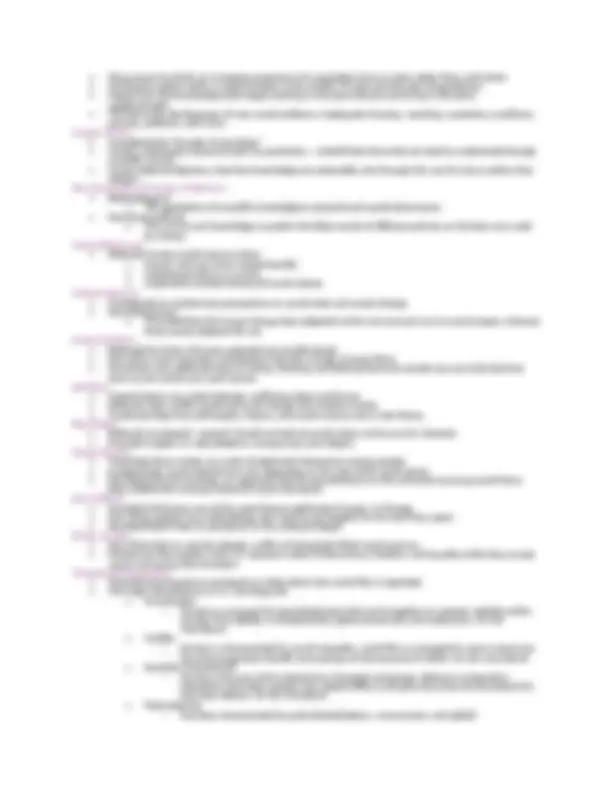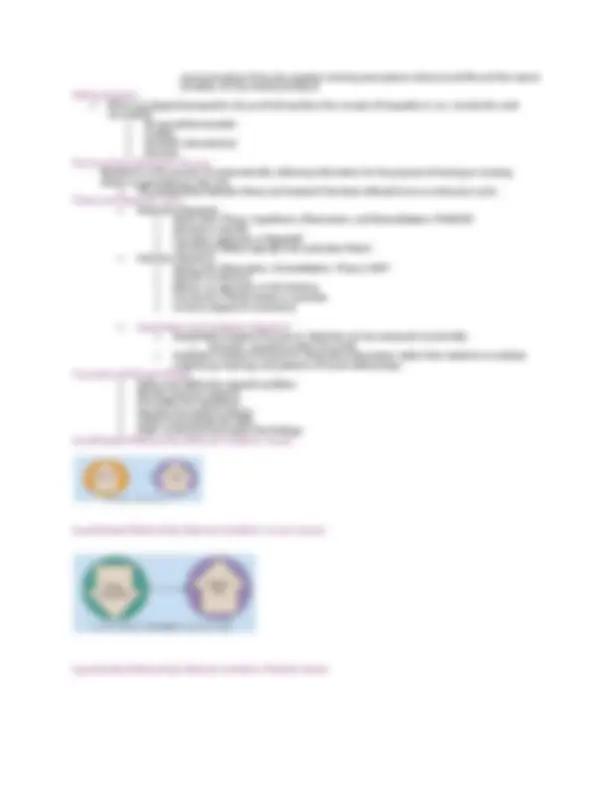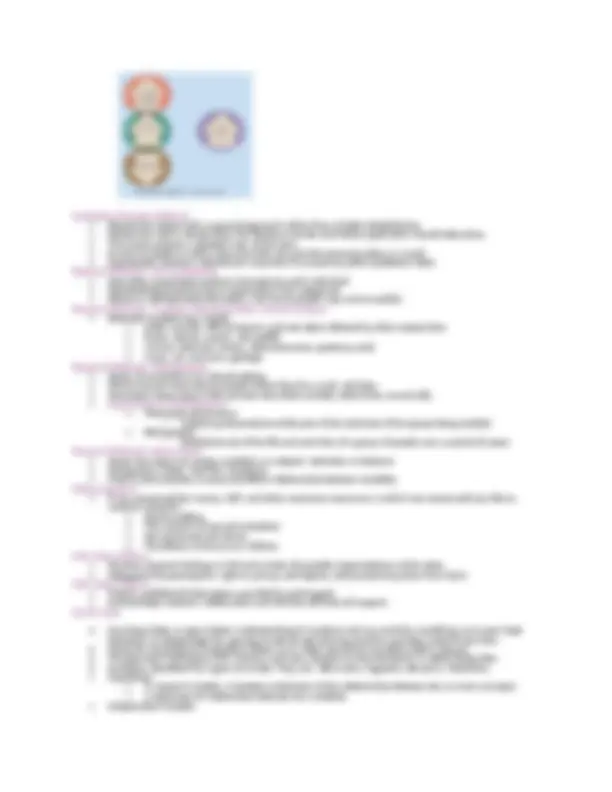





Study with the several resources on Docsity

Earn points by helping other students or get them with a premium plan


Prepare for your exams
Study with the several resources on Docsity

Earn points to download
Earn points by helping other students or get them with a premium plan
Community
Ask the community for help and clear up your study doubts
Discover the best universities in your country according to Docsity users
Free resources
Download our free guides on studying techniques, anxiety management strategies, and thesis advice from Docsity tutors
An introduction to the sociological perspective, focusing on the structure and organization of society, the sociological imagination, and research methods. It covers various theoretical perspectives, including functionalist, conflict, and symbolic interactionist, and discusses the sociological research process, research methods, and ethical issues. The document also touches upon the works of key sociologists like harriet martineau, herbert spencer, and emile durkheim, and their contributions to sociology.
Typology: Study notes
1 / 7

This page cannot be seen from the preview
Don't miss anything!




Chapter 1 The Sociological Perspective and Research Methods Have you ever wondered… About the structure and organization of society? How all the “pieces” of society fit together? What makes society “function”? What causes it to be “dysfunctional”? How people are influenced by factors in their social environment including their family, the media as well as educational, political and economic institutions, etc.? Sociology Students… Explore these questions everyday in an attempt to understand “why people do the things they do” within the structure of a particular society from a sociological perspective. Welcome to an elite group of scholars. The “So What and Who Cares” Factor Sociologists study what has happened, what patterns can be observed and what social factors may have contributed to the existing social condition. The discipline of Sociology also studies who cares and who is affected by the social condition right now. Election 2008 What are the issues that you think sociologists would analyze regarding the presidential race of 2008? How do you think the following issues would be relevant? o Race and Ethnicity o Age o Gender o Social Class The Sociological Imagination What is the structure of this particular society as a whole? Where does this society stand in human history? What varieties of men and women now prevail in this society and in this period? And what varieties are coming to prevail? Are We A Product of Our Environment The sociological perspective says that we are a product of the socialization we receive in our culture. Family is the primary agent of socialization in this life long process. Chapter Outline Contemporary Theoretical Perspectives The Sociological Research Process Research Methods Ethical Issues in Sociological Research Putting Sociological Life into Perspective Sociology is the systematic study of human society and social interaction. Sociologists study societies and social interactions to develop theories about: o How behavior is shaped by group life o How group life is affected by individuals Why Study Sociology? Helps us gain a better understanding of ourselves and our social world. Helps us see how behavior is shaped by the groups to which we belong and our society. Promotes understanding and tolerance by helping us look beyond personal experiences and gain insight into the larger world order. Society A large social grouping that shares the same geographical territory, and is subject to the same political authority and dominant cultural expectations. We are all affected by global interdependence, a relationship in which the lives of all people are intertwined and any nation’s problems are part of a larger global problem. Fields That Use Social Science Research How Much Do You Know About Suicide? True or False? In the United States, suicide occurs on the average of one every 17 minutes.
True. o A suicide occurs on the average of every 17 minutes in the United States. o This differs with respect to the sex, race/ethnicity, and age of the individual. o Men are four times more likely to kill themselves than are women. True or False? More teenagers and young adults die from suicide than from cancer, heart disease, AIDS, birth defects, stroke, pneumonia, influenza, and chronic lung disease combined. True o Suicide is a leading cause of death among teenagers and young adults. o It is the third leading cause of death among young people between 15 and 24 years of age, following unintentional injuries and homicide. Suicide As a Personal Trouble: o Many people consider suicide to be the result of personal problems. As a Public Issue: o Sociologist Emile Durkheim related suicide to the issue of cohesiveness in society instead of viewing it as an isolated act that could be understood by studying individual personalities or inherited tendencies. Suicide Rates by Race and Sex Importance of a Global Sociological Imagination The future of our nation is intertwined with the future of other nations on economic, political, environmental, and humanitarian levels. Understanding diversity and developing tolerance for people who are different from us is important for our personal, social, and economic well-being. High-Income Countries These are nations with highly industrialized economies; technologically advanced industrial, administrative, and service occupations; and high levels of national and personal income. o Examples : United States, Canada They generally have a have a high standard of living and a lower death rate due to advances in nutrition and medical technology. Middle-Income Countries Sometimes referred to as developing countries, these are nations with industrializing economies, particularly in urban areas, and moderate levels of national and personal income. o Examples : Nations of Eastern Europe and many Latin American countries, where nations such as Brazil and Mexico are industrializing rapidly. Low-Income Countries Low-income countries are primarily agrarian nations with little industrialization and low levels of national and personal income. o Examples : Many of the nations of Africa and Asia, particularly India and the People’s Republic of China. Race, Ethnicity, and Class Race is a term used to specify groups of people distinguished by physical characteristics. o Most sociologists consider race a social construction used to justify inequalities. o Ethnicity refers to cultural identity and is based on factors such as language or country of origin. o Class is based on wealth, power, prestige, or other valued resources. Sex and Gender Sex refers to the biological and anatomical differences between females and males. Gender refers to the meanings, beliefs, and practices associated with sex differences, referred to as femininity and masculinity. Industrialization The process by which societies are transformed from dependence on agriculture and handmade products to dependence on manufacturing industries. First occurred during the Industrial Revolution in Britain between 1760 and 1850. Resulted in massive economic, technological, and social changes. People were forced to leave rural communities to seek employment in the emerging cities. Urbanization
communications bring into question existing assumptions about social life and the nature of reality. On the macro/microlevel Polling Question o Which sociological perspective do you think explains the concept of inequality in our society the most accurately? o Structural-functionalist o Conflict o Symbolic interactionist o Feminist The Sociological Research Process Research is the process of systematically collecting information for the purpose of testing an existing theory or generating a new one. The relationship between theory and research has been referred to as a continuous cycle. Theory and Research Cycle Deductive Research o Starts with Theory, Hypothesis, Observation, and Generalization (THEHOG) o General to Specific o Top-down approach or Waterfall o Conclusion follows logically from premises (facts) Inductive Research o Starts with Observation, Generalization, Theory (OGT) o Specific to General o Bottom up approach or hill climbing o Conclusion is likely based on premises o Involves degree of uncertainty Quantitative and Qualitative Research o Quantitative research focuses on data that can be measured numerically. Example : comparing rates of suicide o Qualitative research focuses on interpretive description rather than statistics to analyze underlying meanings and patterns of social relationships. Conventional Research Model Select and define the research problem. Review previous research. Formulate the hypothesis. Develop the research design. Collect and analyze the data. Draw conclusions and report the findings. Hypothesized Relationships Between Variables: Causal Hypothesized Relationships Between Variables: Inverse Causal Hypothesized Relationships Between Variables: Multiple Causes
Qualitative Research Method Researcher begins with a general approach rather than a highly detailed plan. Researcher has to decide when the literature review and theory application should take place. The study presents a detailed view of the topic. Access to people or other resources that can provide necessary data, is crucial. Appropriate research methods are important for acquiring useful qualitative data. Research Methods: Survey Research Describes a population without interviewing each individual. Standardized questions force respondents into categories. Relies on self-reported information, and some people may not be truthful. Research Methods: Analysis of Existing Data/ Content Analysis Materials studied may include: o public records, official reports, and raw data collected by other researchers o books, diaries, poems, and graffiti o movies, television shows, advertisements, greeting cards o music, art, and even garbage Research Methods: Field Research Study of social life in its natural setting. Observing and interviewing people where they live, work, and play. Generates observations that are best described verbally rather than numerically. Approaches to Field Research o Participant observation Collecting observations while part of the activities of the group being studied. o Ethnography Detailed study of the life and activities of a group of people over a period of years. Research Methods: Experiments Study the impact of certain variables on subjects’ attitudes or behavior. Designed to create “real-life” situations. Used to demonstrate a cause-and-effect relationship between variables. Polling Question If you possessed the money, skill, and other necessary resources, in which one area would you like to conduct research? o Racial profiling o The cause(s) of sexual orientation o Sexual assault and abuse o The effects of divorce on children ASA Code of Ethics Disclose research findings in full and include all possible interpretations of the data. Safeguard the participants’ right to privacy and dignity, while protecting them from harm. ASA Code of Ethics Protect confidential information provided by participants. Acknowledge research collaboration and disclose all financial support. Quick Quiz Sociology helps us get a better understanding of ourselves and our world by enabling us to see how behavior is shaped by the groups to which we belong and the society in which we live. Using the Sociological Imagination allows us to make personal troubles public issues. The approach that begins with a theory and uses research to test the theory is called deductive. Durkheim identified four types of suicide. They are: Altruistic, Egoistic, Anomic, Fatalistic. Hypothesis o In research studies, a tentative statement of the relationship between two or more concepts o a statement of relationship between two variables Independent Variable
normative approach o using religion, customs, habits, traditions and the law to answer important questions; based on strong beliefs about what is right and wrong empirical approach o attempts to answer questions through systematic collection and analysis of data, a more scientific method descriptive studies o A type of research method that allows researchers to measure variables so that they can develop a description of a situation or phenomenon explanatory studies o Explanatory studies attempt to explain cause-and-effect relationships and to provide information on why certain events do or do not occur. operational definition o a statement of the procedures (operations) used to define research variables multiple causation o the belief that an event occurs as a result of several factors working in combination cross-sectional studies o based on observations that take place at a single point in time; focus on behavior or responses at a specific moment longitudinal studies o Research method in which data are collected about a group of participants over a number of years to assess how certain characteristics change or remain the same during development random sampling o a method of poll selection that gives each person in a group the same chance of being selected probability sampling o Choosing participants for a study on the basis of specific characteristics egotistic suicide o Occurs when people feel totally detached from society. Low integration into society (Durkheim) altruistic suicide o Suicide that occurs when one experiences too much social integration (Durkheim) fatalistic suicide o suicide undertaken when an individual seeks to escape from an overcontrolling social context; a sociological category in which suicide is said to arise from excessive regulation of individuals by society (Durkheim) anomic suicide o suicide committed by people who experience a severe disorientation and role confusion because of a large change in their relationship to society (Durkheim) respondent o person to provides data for analysis through interview or questionnaires interview o data collection encounter in which an interviewer asks the respondent questions and records the answers structured interview o Type of interview in which interviewer asks every applicant the same questions; also called a repetitive interview. multivariate analysis o research involving two or more variables case study o a careful study of some social unit (as a corporation or division within a corporation) that attempts to determine what factors led to its success or failure unstructured interview o An interview in which the question-answer sequence is spontaneous, open-ended, and flexible. snowball sampling o selection of participants through referrals from earlier participants; also called network sampling grounded theory o Qualitative procedures that are used to develop detailed concepts or conditional propositions for situations; also, summaries of facts. Reactivity o the tendency of subjects to change their behavior in response to the researcher or the fact that they are being studied triangulation o The use of multiple research methods as a way of producing more reliable empirical data than is available from any single method. Questioner